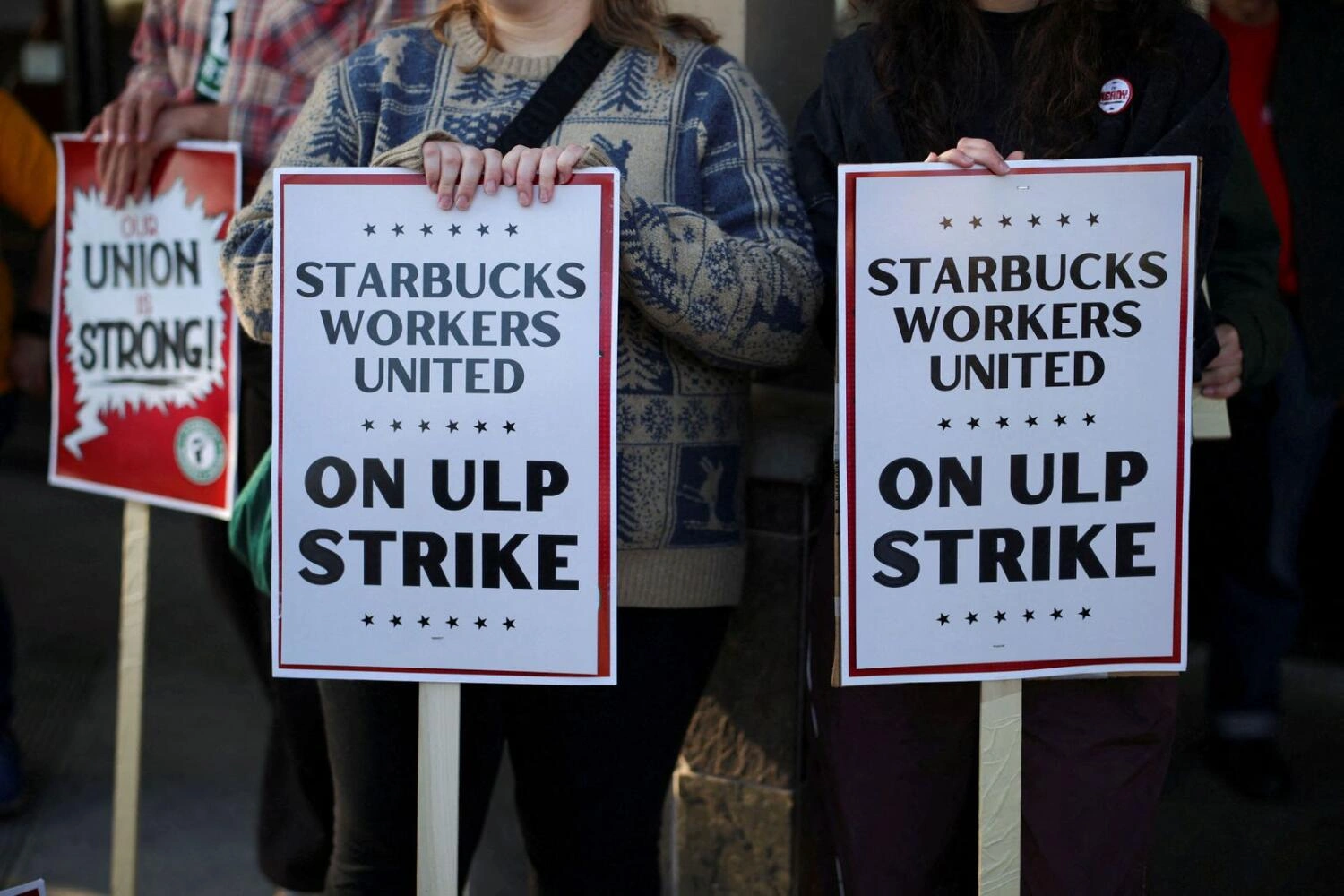Some Starbucks workers in a union representing over 10,000 baristas walked off their jobs on Friday in various US cities. They protested issues like low wages, understaffing, and scheduling problems.
The five-day strike, which started Friday, shut down Starbucks locations in Los Angeles, Chicago, and Seattle. The union announced it would expand the strike to Columbus, Denver, and Pittsburgh by Saturday.
Growing Momentum in Labor Strikes
This strike is one of many labor movements gaining traction in service industries, following significant victories in manufacturing sectors like automotive and aerospace. At Starbucks, the Workers United union, representing employees in 525 stores nationwide, said the walkouts could increase and might affect “hundreds of stores” by Christmas Eve.
Starbucks claimed about 10 of its 10,000 company-run stores were closed on Friday, saying the strikes had minimal impact on operations. However, picket lines appeared in several cities. In Chicago, for example, about 20 workers braved harsh weather, cheering as passing cars honked in support. Some customers were confused by the closures, but union member Shep Searl noted the reaction from the public was mostly positive.
Worker Complaints
Union members reported facing unfair labor practices, including unwarranted write-ups and meetings discouraging union activity. Baristas in Chicago, who earn $21 per hour, stated that inflation and high living costs made the wage insufficient. Many also mentioned struggling to get 40-hour work weeks.
Disputed Negotiations
Negotiations between Starbucks and the union began in April, with over 30 agreements reached on various topics. However, the union accused the company of refusing to present a serious wage proposal, alleging bad-faith bargaining.
Starbucks offered a minimal wage increase and a 1.5% annual hike, which the union rejected. Workers proposed an immediate 64% pay raise for hourly employees and a 77% increase over three years. Starbucks argued the demand was unsustainable. Union delegate Michelle Eisen countered, saying Starbucks was misrepresenting their proposals.
Legal Challenges
The union filed new labor complaints, accusing Starbucks of unfair practices like firing union supporters and shutting down stores during union campaigns. Starbucks denied the allegations, stating it respects workers’ right to unionize.
Broader Impact
The strike is happening during Starbucks’ busiest season, potentially damaging its reputation and sales. Analyst Rachel Wolff highlighted that this labor action could bring unwanted scrutiny to the company’s practices.
Amid these challenges, Starbucks’ CEO Brian Niccol aims to revitalize the brand by focusing on improving cafe experiences and streamlining the menu.
The Starbucks strike coincides with Amazon workers walking out at seven facilities, marking a surge in labor actions during the holiday season. According to the US Bureau of Labor Statistics, 2023 recorded 33 work stoppages the highest since 2000 but still lower than previous decades.





